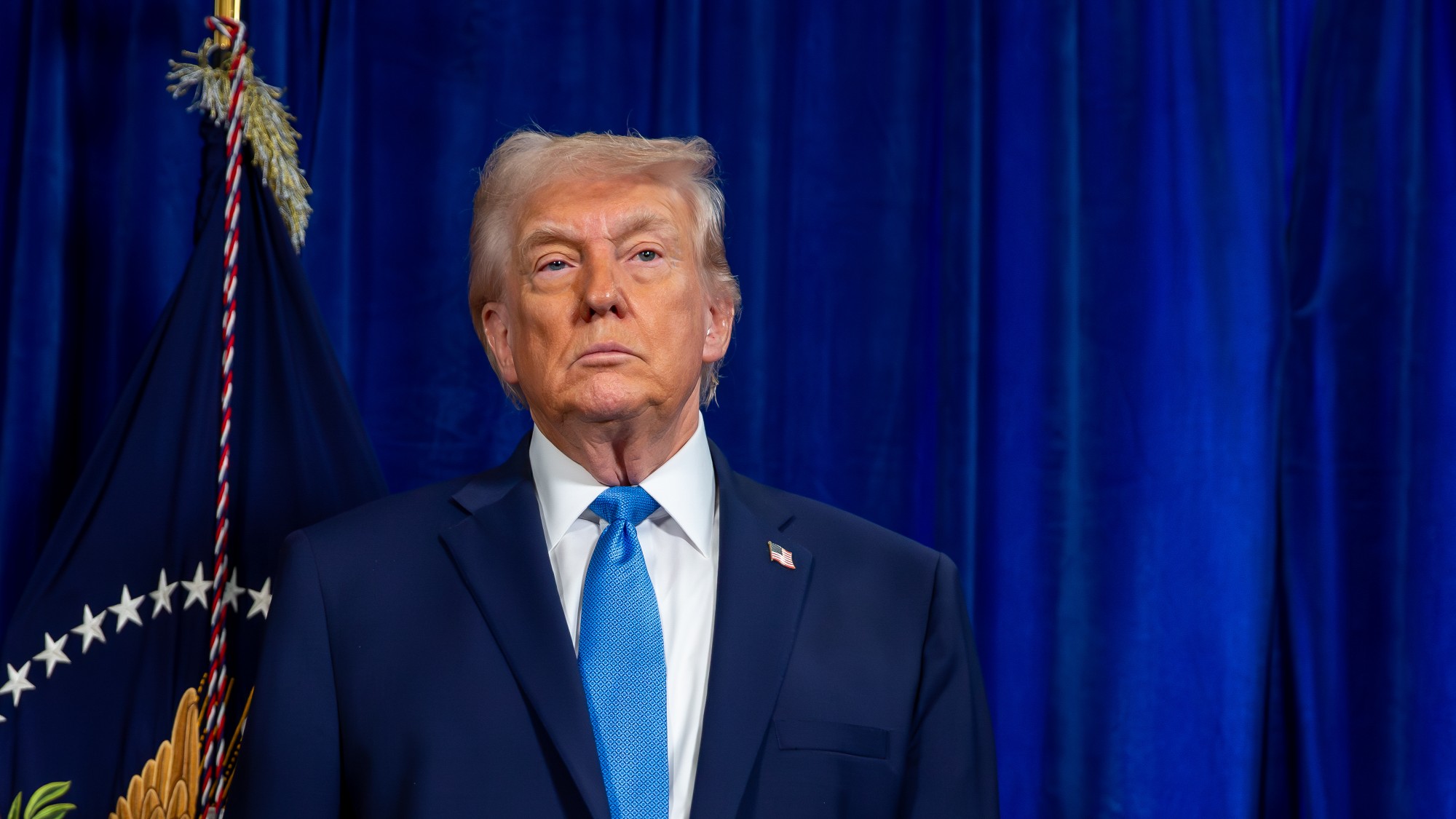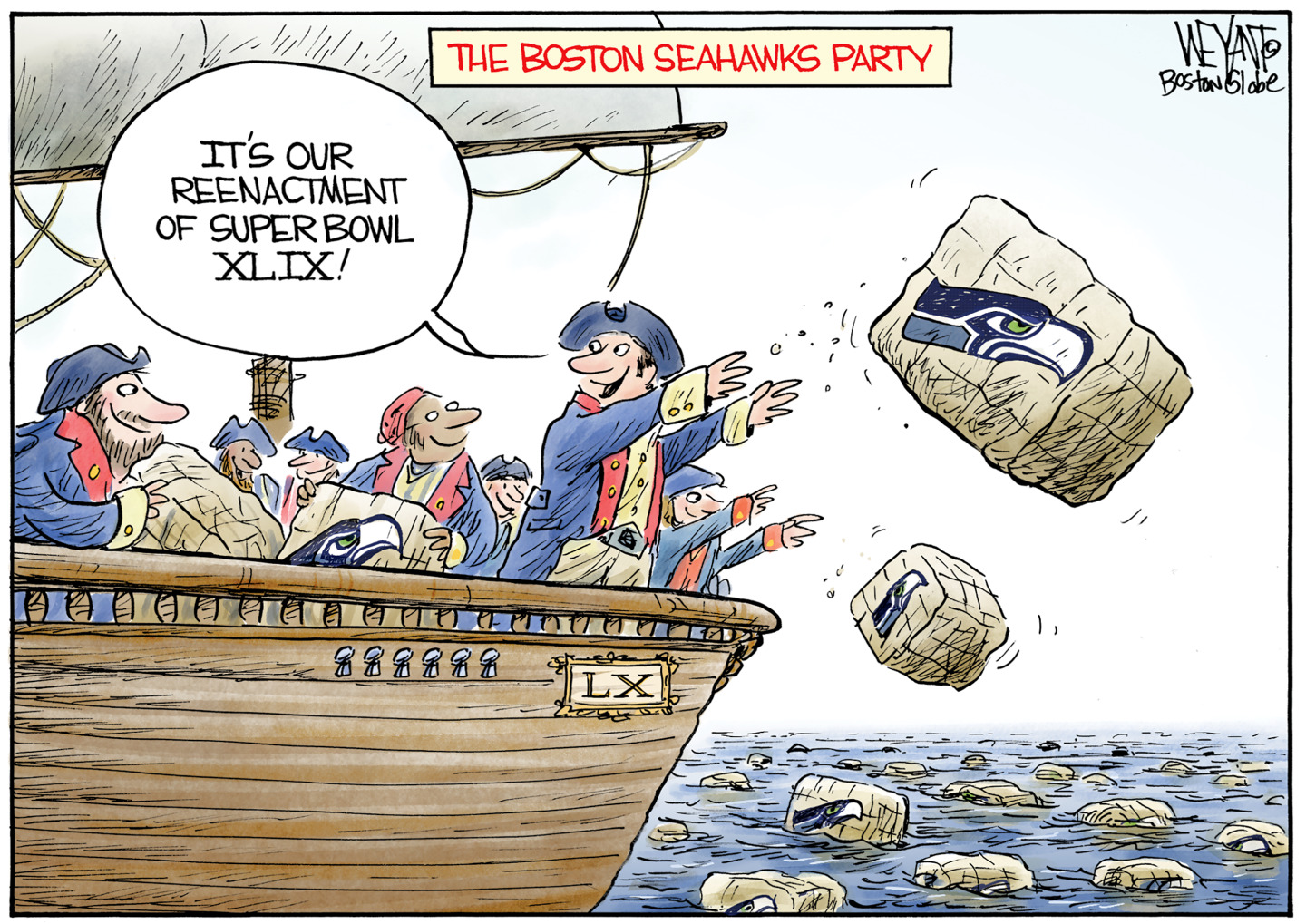Hey Davos-people: Give money to musicians
An unconventional way to change the world


A free daily email with the biggest news stories of the day – and the best features from TheWeek.com
You are now subscribed
Your newsletter sign-up was successful
The snowy gilded gilt pit known as the World Economic Forum at Davos ended last week, and the world's philanthropists and politico-corporato-medio elites are now back home, pondering how to be "confident, not complacent." This is not a Davos-bashing column. You can find the best ones right here. This is a call to the elites of the world — OK, that's just as obnoxious, but hang with me for a second — to consider a new type of philanthropy, once that could benefit from some attention.
There will never be enough philanthropists for the problems facing the world. Many philanthropists give money to established political and non-profit organizations. These organizations do good. Incredible good, like improving pre- and post-natal hygiene in the developing world, which can change the outlook for women and babies overnight. I'm all for philanthropists giving to causes.
But we don't really live in a top-down era anymore. And philanthropy seems to have overlooked a very important mechanism for generating action among people: Music.
The Week
Escape your echo chamber. Get the facts behind the news, plus analysis from multiple perspectives.

Sign up for The Week's Free Newsletters
From our morning news briefing to a weekly Good News Newsletter, get the best of The Week delivered directly to your inbox.
From our morning news briefing to a weekly Good News Newsletter, get the best of The Week delivered directly to your inbox.
Who will be the George Soros for musicians? Not for "the arts," but for specific musicians? Musicians who bring something to the table? Artists who need a break to launch their careers and distribution mechanisms to popularize their work. I know this sounds silly, but hang in with me for a little longer.
In 1985, in the middle of a brutal famine in Africa, Michael Jackson and the music industry organized "Africa for USA" and raised the largest collective sum of money ever from sales off of a song, "We Are The World," that I would bet almost every one of you remember. If you start to sing it, you'll remember more of the lyrics.
Flash forward to the Sundance Film Festival this year. Outside of Cannes, Sundance is arguably the most influential "indie" festival out there. How many of you can name a single documentary, much less a winning one. Now, these films are awesome pieces of work. But are they going to be seen by 100,000 people, much less a million? If the goal is to change society, to draw attention to problems, film is an inefficient syndicate. It's one thing to get elites in Washington to watch your doc on the drug wars, but movies about causes don't stay around.
In contrast, PSY's "Gangnam Style" has sold almost 4 million copies in the United States alone, has been praised as a unifying world force by the Secretary of General of the United Nations, and has been seen by hundreds of millions of people across the globe. A song making fun of Koreans who like the style of a pretentious upscale neighborhood in Seoul is not exactly a song about a cause. But dammit if that song is ever going to get out of my head.
A free daily email with the biggest news stories of the day – and the best features from TheWeek.com
Musicians have the power to motivate millions of people to action, almost overnight. I find my surprised to be quoting Cornell West, but it is true: "Music is the way to touch somebody's soul without asking for permission."
So let's say you're a young billionaire. You want to make a difference. You'd like to do something different. Let's say that you figure out a way to find and cultivate musicians with a message. There will be self-metering: If the music sucks, no amount of money is going to help it not suck. But if it's good, and there are a lot of really astonishingly good singers out there who can't get agency representation, then maybe you're onto something. Your criteria consists of the following: The person has to be devoted to a cause that is worth drawing attention to and a cause where collective or self-generated action would make a real difference. You commit a certain amount of money to a creative process that finds the best of these activist-musicians and nourishes them. Then you let them go. You can't control the music, ultimately, and you can't really control the artist either. But you can discover difference-makers who can skip the first stage of commercial viability and then find their own audience. You might not see a return on your investment for awhile. You have to be patient. You have to be independent. You do this in different countries. You do it openly and covertly, depending upon the context.
And internally-directed: If you don't give money to feed the poor or clothe the naked or put a roof over the head of the homeless or educate children, your fellow philanthropists may deride you as a dilettante. So you risk not really fitting in with the philanthropy crowd.
But your philanthropy has a pedigree: LiveAid. Bono. FarmAid. AIDS in Africa.
And imagine, as the world becomes even more efficient at transmitting catchy cultural products across countries, generations and poverty lines, what it could do.
Look at how music helped elect Barack Obama; it's one thing to see George Clooney at a rally, but you're going to be a lot more enthusiastic after hearing Will.I.Am perform. And while this "cause" is conventional and the artists established, it still changed the world. You can't run for president anymore without the presence of incredible musicians by your side during the last few weeks of your candidacy. There is a reason for this, and it has everything to do with what's cool and what resonates.
If you read Felix Salmon's Davos-bashing column at the start of this rant, you'll doubtless appreciate this irony: A handful of musicians without any real help became the rallying cry for protesters in Egypt. One of the musicians, like Ramy Esam, was arrested and tortured.
Here at home, Lady Gaga's music has been an integral part of America's sudden awareness of the dangers of bullying.
Music ain't the whole story, of course. Never will be. But when things happen in the world, inevitably a soundtrack is developed, and it almost always plays a significant role in gluing together whatever arises from whatever is happening.
Maybe music can't be harnessed like this, but I think someone with money ought to try.
Marc Ambinder is TheWeek.com's editor-at-large. He is the author, with D.B. Grady, of The Command and Deep State: Inside the Government Secrecy Industry. Marc is also a contributing editor for The Atlantic and GQ. Formerly, he served as White House correspondent for National Journal, chief political consultant for CBS News, and politics editor at The Atlantic. Marc is a 2001 graduate of Harvard. He is married to Michael Park, a corporate strategy consultant, and lives in Los Angeles.
-
 American empire: a history of US imperial expansion
American empire: a history of US imperial expansionDonald Trump’s 21st century take on the Monroe Doctrine harks back to an earlier era of US interference in Latin America
-
 Elon Musk’s starry mega-merger
Elon Musk’s starry mega-mergerTalking Point SpaceX founder is promising investors a rocket trip to the future – and a sprawling conglomerate to boot
-
 5 superbly funny cartoons about the Superbowl
5 superbly funny cartoons about the SuperbowlCartoons Artists take on historical reenactment, biased bowls, and more
